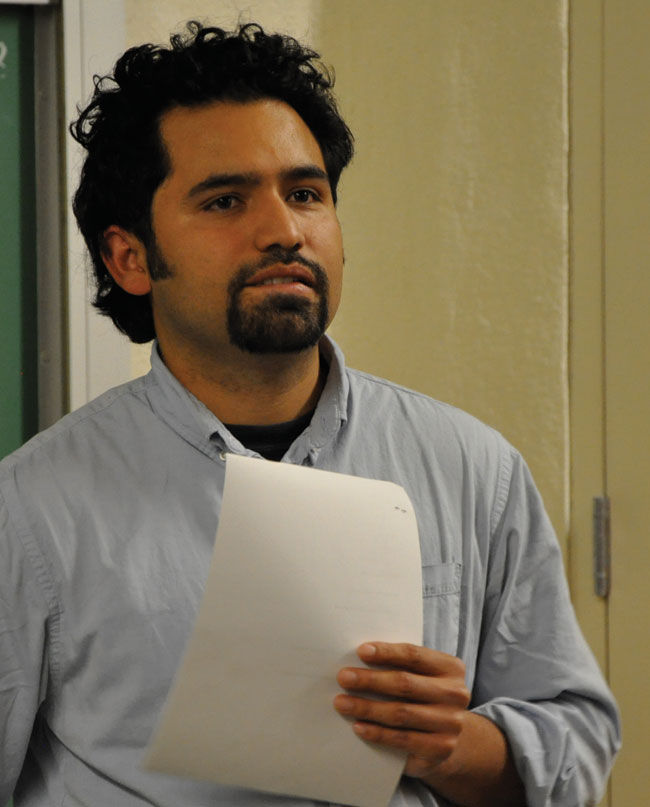
An overflow of faculty and staff, all crammed into the CPM lecture hall, on Feb. 16th, to kick off the Spanish and Spanish American Studies Programs annual Spring Lecture Series.
Some sat in chairs, others sat on the floor, but all were attentive to the man standing at the front of the room, Mexican poet and translator Hugo Garcia Manriquez. Manriquez, known for his books, “No oscuro todavia” and “Los Materiales” was selected specifically by the Spanish American Studies Program for his expertise in contemporary poetry and his knowledge of small presses in Mexico.
For Professor Carlota Caulfield, who teaches the Mexican Women Writers class during which the lecture took place, the Spring Lecture Series is really important.
“(I) think our students can benefit from the close interaction with scholars,” Caulfield said, “especially speakers from our local Bay Area Latino community.”
Every year, the professors get together to pick and invite speakers to lecture in the series. Professors select candidates from both the United States and, if the budget permits, Latin America.
“We bring not only writers, but professors and literary scholars in particular connect to the Spanish world, Latino cultures and literature,” which sets the Spring Lecture Series apart from the Contemporary Writers’ Series, which only invites poets and fiction writers, Caulfield said. “We have a very limited budget, so we’d like to invite speakers from other places, but this time we’re lucky to have so many scholars around in the area.”
Such scholars include Manriquez, who began writing at around eighteen years old whenhe learned about poetry in high school.
“I guess I somehow came to know poems by French surrealists, and I was struck by that,” Manriquez said. “After that I kept finding new authors.”
Manriquez counts Cesar Vallejo, Pablo Neruda, William Carlos Williams and other Brazilian poets among his influences.
“My writing process changes from project to project,” Manriquez said. “For my first book, I used a lot of quotations; I was quoting my mom, my dad and even Nietzsche.”
In the past, Manriquez has written his poems in Spanish, though he does translate much of his work from Spanish to English to make it accessible to a wider audience. The poet said he prefers to stick to one language rather than switching from one to the other in the middle of his poetry.
“There’s still a history that needs to be written and told.”
– Hugo G. Manriquez
Recently, Manriquez has started writing directly in English, a departure from his previous style.
“It’s kind of scary,” Manriquez said of the transition, but affirms that it has helped him grow a lot.
When discussing his own writing, Manriquez stressed the importance of publishing houses in the Mexican economy. He pointed out that there isn’t a need to go through a large publisher to get a poet’s work published. Many poets in Mexico are using smaller presses and blogs.
One of the writing groups taking advantage of smaller presses and blogs are contemporary Mexican women poets. In addition to reading his own work, Manriquez read several poems by such women, which many students found inspiring.
“Hearing about the different Mexican women poets, because I’m Mexican myself, makes me want to do my own research,” said sophomore and Political Legal Economic Analysis (PLEA) major Janeth Medina.
Manriquez encouraged attendees to learn more about Mexican poets and do writing of their own.
“There’s still history and voices that need to be written and told,” Manriquez said.
To find out about future events in the Spring Lecture Series, keep an eye on Student News or e-mail Professor Carlota Caulfield at amach@mills.edu.

